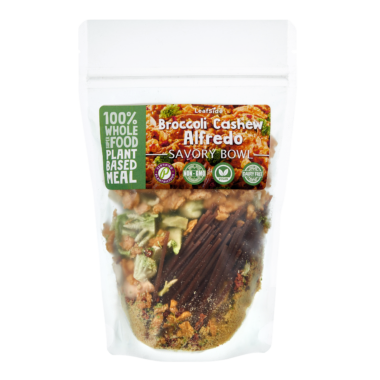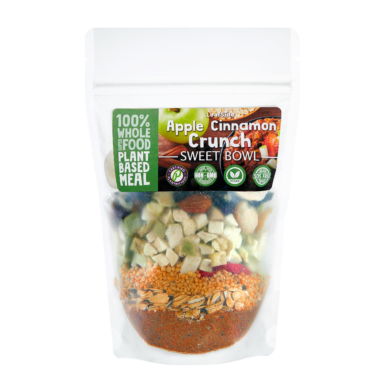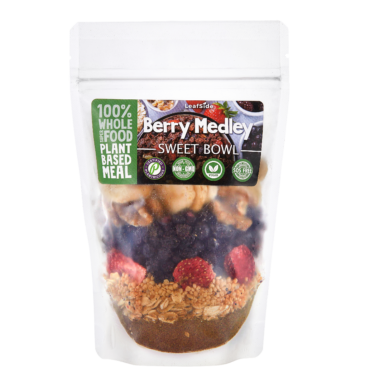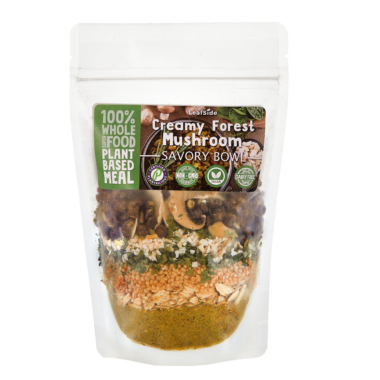Health & Wellness, Updates
LeafSide Health Review, June 2023 🤓🎓
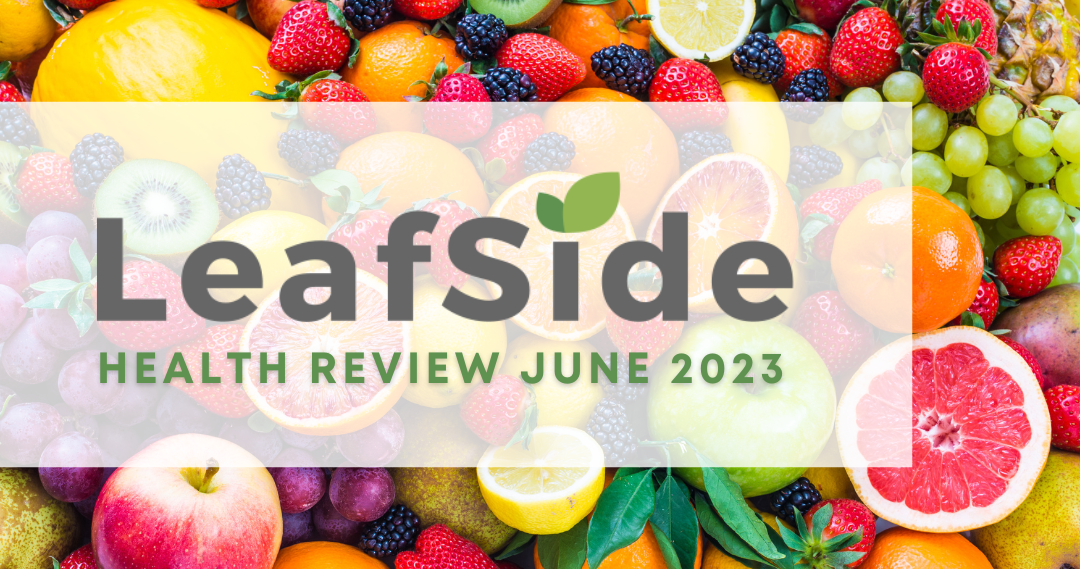
An enduring question of the ages is, Does nature or nurture matter more? 🧬 i.e. How much of who we are is due to inherited genes, versus environment and choice? 🌳
Many branches of science have been using groups of genetically identical twins 👯♀️ to help answer that question.
It turns out that even when two people have the same DNA, they can have different fingerprints, different diseases, and different responses to the same foods. 🍎🍏
On the last point, What’s the x-factor? ❓ What explains different bodily responses (at least in the short-term) to the same diet and same foods?! 🍔🥗
After all, never mind twins; it’s clear that human anatomy for food ingestion & digestion doesn’t differ much across the planet: We all have the same set of teeth 🦷, a common jaw structure, saliva, a stomach, and a very long intestinal system — all bodily features shared by animals eating mostly or all plants. 🌱 So where do differences arise?
Turns out the x-factor is our tens of trillions of little friends living with us, aka our 2nd brain, aka our gut microbiome… 🧠🦠
Straight from the Gut!
Dr. Tim Spector is a leading microbiome scientist (a genetic epidemiologist) 🔬 with over 1000 academic publications to his name (and he’s in the top 1% of most cited scientists), including being a leader of the American Gut Health (AGH) Project, the largest study to date of the human microbiome.
Started in 2012, the AGH project examines the gut microbiomes of thousands of volunteers, aka “citizen science” — now well over 10,000 individuals — riding the technological trend of ever decreasing costs to genetically sequence and identify microbes. 🧬
Few are better qualified to give us an update on AGH findings, and microbiome science, than Dr. Spector. With a new book out, he stopped by the Rich Roll podcast for a wide-ranging interview, combining a broad decades-long overview of microbiome and nutrition science, with detailed advice for what and how to eat day by day.
OPTIMIZE YOUR GUT to Fight Disease: New Science of Eating Well | Dr. Tim Spector X Rich Roll Podcast
Pssst…it’s long and a bit slow-paced, so if you’re keen to nerd out on the science, we suggest increasing the playback speed to 1.25x or 1.5x (click the little gear icon to change playback speed).
And if you’re really short on time, here are highlights:
- Dr. Spector’s 3 decades of work on twins studies and their different health outcomes, convinced him that environment and lifestyle choices largely control our health. ✅
- Even people with the same genetics respond differently to the same foods — the main explanation is the health of their microbiome. Identical twins’ microbiomes can become very different over time.
- The microbiome is like a mini-pharmacy, able to transform the foods (and their plants-only fiber) you ingest into all kinds of beneficial biochemicals your body needs — including your brain 🧠 (e.g. feel-good neurochemicals: most serotonin, and half of dopamine, are made by your microbiome), and immune system (about two-thirds of immune cells are right by your gut, guarding the rest of you against unwanted pathogens).
- The wider variety of plant foods you eat, the more capable and responsive your mini-pharmacy becomes, able to meet more challenges like fighting off an infection. 👍 Gardening and spending time in nature can also help improve one’s microbiome.
- Dr. Spector spent time with the last traditional hunter-gatherer society in Africa, 🌍 the Hadza, and ate what they ate. Contrary to preconceptions, the majority of their diet was plant-based, and high in variety and complex carbohydrates, giving them high scores in microbiome health. Dr. S mentioned his own microbiome diversity improved by about 30% after living with the Hadza, albeit temporarily.
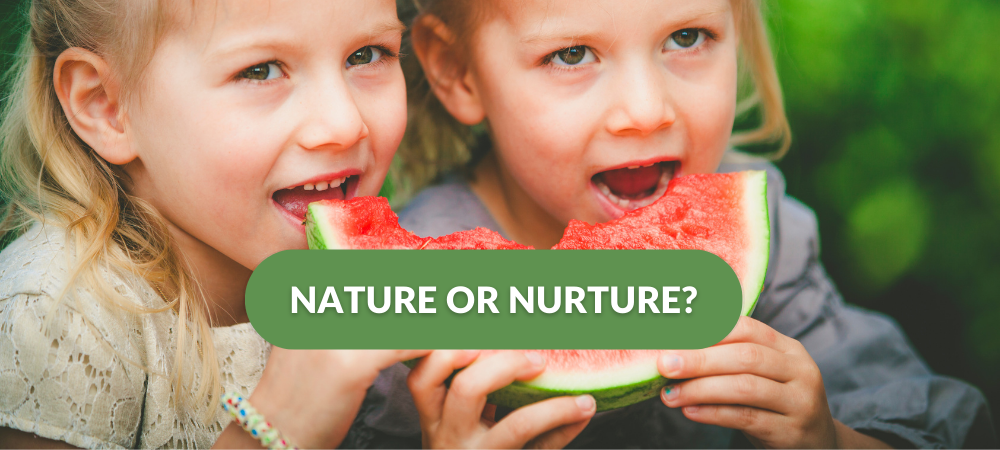
Dr. Spector’s Dietary Advice
Pressed for time? You can skip to the the 2hr 31min mark for the summary of advice: https://youtu.be/nop0-lZy9cM?t=9110 or skim our bullet-points:
- 🚫 🍔 Cut out processed and ultra-processed foods entirely. Learn to completely distrust their calories and fats numbers — like a malfeasant magician, processed food labels’ macronutrients (calories, fat, carbs, protein) misdirect you away from the major missing nutrition gotten from whole plants: fiber, micronutrients, and phytonutrients. ✅
- 🌱 🍎 Choose organic products whenever possible; the studies are clear that they bring fewer herbicides (like glyphosate) and pesticides, and more phytonutrients. Dr. S notes that glyphosate’s adoption in wheat 🌾 agriculture in 2006 coincided with the very fast rise of gluten intolerance and celiac disease since then.
- 🌈 🥦 Per the AGH Project and other studies, maximize the diversity of plants in your diet: Enjoy at least 30 different kinds of whole plant foods, per week. And ensure nutrient variety by “eating the rainbow” because all kinds of colors = all kinds of phytonutrients. Bitter foods — including coffee ☕️ and dark chocolate — are particularly rich in polyphenols. 💚
- 🍽️ ⏰ Take daily extended breaks from eating, i.e. do some intermittent fasting: Giving your gut a daily mini-vacation (12-14 hours) can help increase microbial diversity, and gives time for gut lining repairs. It’s like giving your gut garden a good night’s rest. 💤
- 🔬 🥬 Experiment: Try a wide variety of whole foods and note how your body responds. Incorporate fermented foods, like kimchi, sauerkraut, kombucha. Microbiome science is still a ways off from making reliable predictions about what particular foods are best for a particular person, so sample foods widely. Your microbiome is unique, AND also evolves over time — experiment, eat, and enjoy! 😋
Exercise Before Eating, to Burn More Fat
We know our LeafSiders are more proactive and time-smart than most, so this recent evidence-based exercise advice will be of interest: Exercise before a meal at any time of the day, 🏃♀️ 🏋️♀️ on an empty stomach (i.e. fasted state), to boost fat-burning because your body will tap your glycogen and fat storage more:
The Best Time to Exercise for Weight Loss
Whatcha’ Doing For Me Lately, Vitamin D?
We know that most of us living in the northern hemisphere don’t get enough sunlight 🌞 and should take a vitamin D supplement — are there other benefits in your daily tablet to be aware of? Yes! It doesn’t help help across the board with every chronic condition, but for COPD and some forms of cancer, it can help:
Disclaimer: LeafSide’s content highlights select nutrition, health, and wellness resources based on an experienced appraisal of usefulness, and empirical evidence. The views and opinions of the creators of such external resources are entirely their own and may not reflect those of LeafSide. As usual, the information we share is not individualized medical advice. We encourage readers to do their own research and due diligence before adopting any lifestyle changes shared here or elsewhere.
Thank You! 🙌
Thank you for being on the LeafSide, and for choosing food that makes a difference — for you and yours, for the animals, and for our one planet Earth. 🌻 🌎
Please feel free to contact us at any time with your questions or feedback; it’s with your help that we’re making the plant-based revolution happen!


